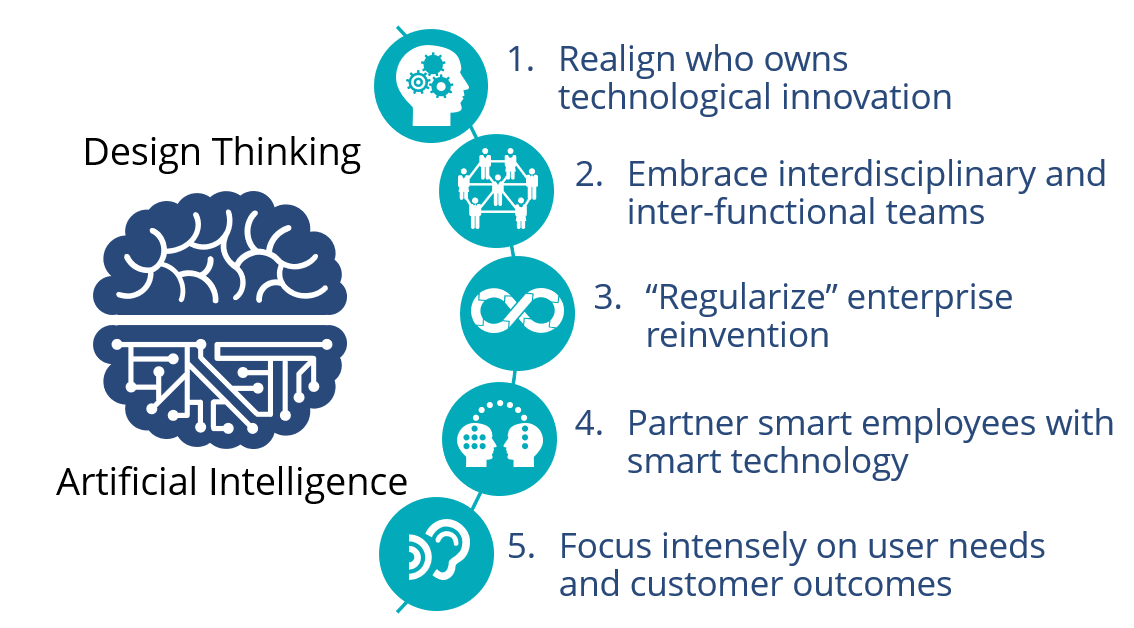Comments
- No comments found

Artificial intelligence (AI) has been a dominant player within the top digital technology trends shaping our global economy and society.
The enterprise AI market report published recently highlights a total valuation of $9880.4M by 2023 with an impressive CAGR of 51.1%.
Digital giants spent billions of $ on R&D and acquisitions over the last 4 years with machine learning receiving the largest share.
The current global pandemic has accelerated the digital technology adoption for numerous organizations and businesses that were planning to develop their AI strategy, as they had to markedly shorten their timelines and many that had not even contemplated an AI strategy yet were forced to embark practically overnight due to the changing global competitive landscape.
There are many challenges to overcome in implementing an enterprise AI strategy, however the main one is a sub-optimal strategy.
Some of the key failures reported globally are: failing to succeed in deployment of AI, failing to show the forecasted ROI and privacy concerns.
Each of these can be prevented or managed by having a state of the art AI strategy and one of the concepts uniquely suited for the complexities of AI technology is design thinking.

By combining the foundational elements that define design thinking with the key elements of success that are shaping the global AI ecosystem, business leaders can develop an optimal AI Enterprise Strategy.
This type of approach requires a culture shift.
By adequately engaging their teams in the empathize, define, ideate stages, as well as following the methodology required for rapid prototyping business leaders can develop AI frameworks, their AI roadmaps, their AI brands and ensure a continuous innovation loop that is essential for long term sustainability.
Using the Design Thinking Framework for AI strategic planning can facilitate a mindful engagement of human capital, the development of an efficient data infrastructure and computing architecture, as well as the creation of a proactive digital ethics program to prevent some of the existing concerns related to a large-scale AI adoption globally.
Ingrid Vasiliu-Feltes, MD MBA Is a healthcare executive, futurist and globalist who is highly dedicated to digital and ethics advocacy. She is a Forbes Business Council member, digital strategist, passionate educator and entrepreneurship ecosystem builder, known as an expert speaker, board advisor and consultant. Throughout her career she has received several awards for excellence in research, teaching or leadership. She is the recipient of numerous awards most notably: WBAF World Excellence AwardSocial Entrepreneurship 2021, Top 20 Global Leaders in Digital Twins Technologies, Top 50 Global Leaders in Health Tech,Top 50 Global Ecosystem Leaders, Top 100 Visionary In Education Award 2021, Top 100 Global Women in Leadership Award 2021, Top 100 World Women Vision Award, 2021-Innovation & Tech, Top 100 Women in Social Enterprise 2021 (nominee),Top 50 Global Thinkers (Nominee),Nations of Women Change Makers Award(finalist),Top 100 Healthcare Leader 2020 Award, Top 100 Finance Leader 2020 Award, and Top 100 Women in Crypto 2020. Additionally, she serves as an Expert Advisor to the EU Blockchain Observatory Forum, and was appointed to the Board of UN Legal and Economic Empowerment Network. Dr. Vasiliu-Feltes is CEO of Softhread Inc., the Founder and CEO of The Science, Entrepreneurship and Investments Institute, and currently serving as a Country Director for WBAF USA, Senator of WBAF, Faculty Member of the WBAF Business School-Division of Entrepreneurship, and teaching the Executive MBA Business Technology Course at the UM Business School. She is also acting as the Chief Innovation Officer for the Government Blockchain Association. Most recently she served as President of Detect Genomix, Chief Quality and Safety Officer Chief and Innovation Officer for Mednax, Chief Quality and Safety Officer and Chief of Compliance for the University of Miami UHealth System During her academic tenure she taught several courses within the Medical School, as well as the combined MD/PhD and MD/MPH programs. Throughout her career, Dr. Vasiliu-Feltes held several leadership positions and is a member of numerous prestigious professional organizations. She holds several certifications, such as Bioethics from Harvard, Artificial Intelligence and Business Strategy from MIT Sloan, Blockchain Technology and Business Innovation from MIT Sloan, Finance from Harvard Business School, Negotiation from Harvard Law School, Innovation and Entrepreneurship from Stanford Graduate School of Business, Certified Professional in Healthcare Risk Management, Fellow of the American College of Healthcare Executives, Patient Safety Officer by the International Board Federation of Safety Managers, Master Black Belt in Lean and Six Sigma Management, Professional in Healthcare Quality by the National Association of Healthcare Quality, Manager for Quality and Organizational Excellence, by the American Society for Quality, and Certified Risk Management Professional by the American Society for Healthcare Risk Management. Additionally, Dr. Vasiliu-Feltes is an Honorary Advisory Board Member of several companies, as well as an Editorial Board Member for several international publications, an author and TV/Media partner.
Leave your comments
Post comment as a guest